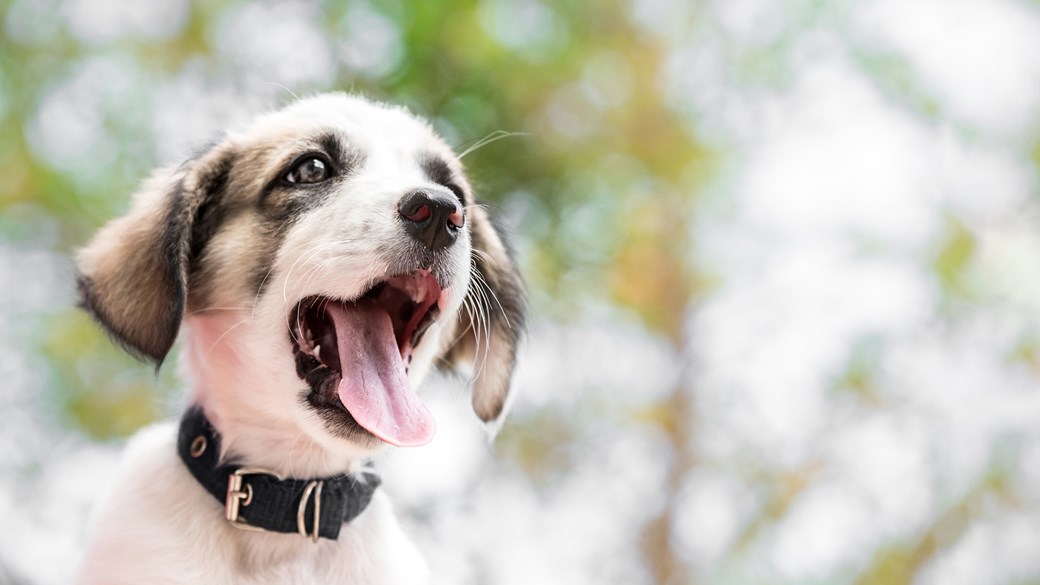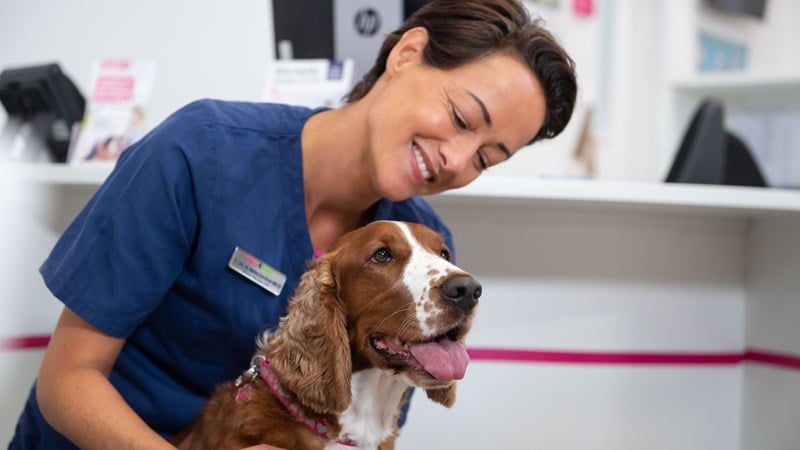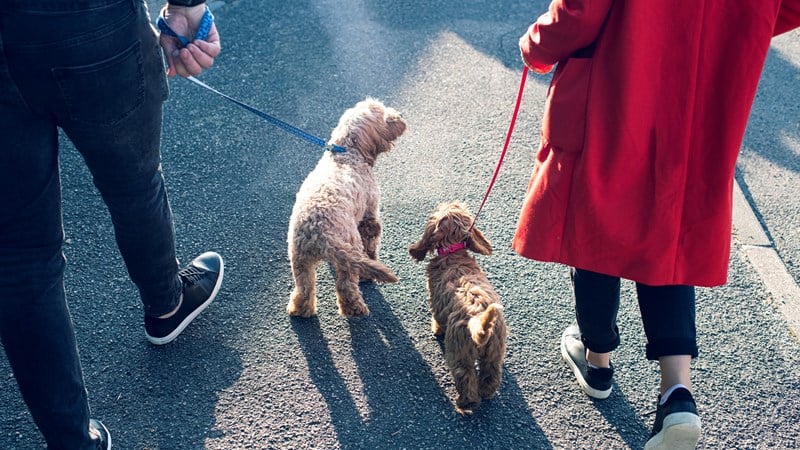
Avoiding Puppy Biting
Learning to regulate how hard teeth come down, and what is and is not ok to bite on, is called ‘bite inhibition’.
When there’s a new puppy in the house, everyone wants to be part of the fun! Importantly though, everyone also needs to know how to keep play fun and safe – both for puppy and for everyone else! Puppy biting and mouthing is a commonly reported problem, which can seem harmless in puppies but can develop into a much bigger problem if not handled when your pup is still young.
Why do puppies bite?
Puppies play bite because this is how they would play with the other puppies in their litter. ‘Rough-housing’ is part of day to day activity between pups, and puppies actually have to learn the difference between how to play with them and how to play with you. Sadly as puppies get older, if they don’t learn this distinction, their play-style doesn’t change and their increased strength and adult teeth can make play dangerous.
Although some owners may like to play rough with their dogs, it’s important to consider if the behaviours will still be ok when your dog is fully grown and has adult teeth. It’s also important to consider that your dog may interact with people who are not as capable of playing rough, such as children or the elderly. Making sure your dog is never in a position where they could accidentally injure someone is the best way to protect them and those around them.
How can I teach my puppy not to bite?
Within a litter environment, puppies learn when they have gone too far because one puppy will cry out or squeal. At this point, play stops, so puppies quickly learn the limits. Training to prevent puppy biting uses this principle, to make sure your puppy learns that when playing with people teeth are off limits.
Tips for training safe play:
- Say ouch whenever your puppy's teeth come into contact with your skin and pull your hand away. Stop play for a few seconds, so your puppy knows that using their teeth leads to the fun stopping!
- If your puppy is playing well, don't forget to praise them! Rewarding good behaviour is the best way to encourage your puppy to do that behaviour again.
- Don't use your hand as a toy this is really confusing for a puppy, as it's harder for them to learn what they can and can't use their teeth on. Always use size and development stage appropriate dog toys.
- Don't give your dog a treat if he is licking, biting or pawing at your hand. You want to help your dog understand that he will never get a treat with these behaviours. Wait until he is calm and a little back from your hand before you give any tasty tit-bits!
- Puppies like to chew, so if your puppy is trying to chew on your hands or feet, give them something appropriate to chew on instead so they don' feel frustrated.
- Be patient and understanding mouthing is normal behaviour for a puppy, so it's important!
Find your local Vets4Pets practice here.
Health Plans to keep your puppy healthy
At Vets4Pets we offer a range of Health Plans that make essential routine treatments more affordable. You'll save money on things like annual vaccinations, flea and worm treatment and routine health check-ups.

Join our free VIP Puppy club
Join the club for expert advice and tailored offers, including £30 off our Complete Care Health Plans

Puppy & Kitten Advice
Giving your pet the best start in life begins with getting the best expert advice.
